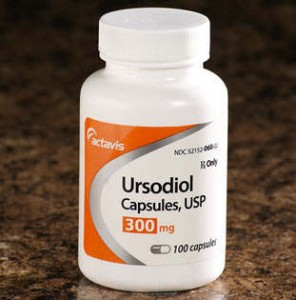Ursodiol Side Effects. A drug used to treat some types of liver disease can cause serious side effects in some patients, makers of the medication said on Dec. 5 in a joint advisory with Health Canada.
A clinical study found ursodiol or ursodeoxycholic acid, used to treat patients with the liver disease called primary sclerosing cholangiti, to have serious adverse reactions in patients who were given twice the recommended dose.
But even as manufacturers and Canada’s national health agency issued the warning, they also advised patients not to stop taking the medication or to modify treatment without medical advice.
The drug is manufactured by Aptalis Pharma Canada Inc., Dominion Pharmacal, Pharmascience Inc., Pharmel Inc. and Teva Canada Ltd. under the brand names UDCA, URSO, URSO DS, Dom-URSODIOL C, phl-URSODIOL C, pmsURSODIOL C or TEVA-URSODIOL.
Sclerosing cholangitis — marked by swelling, scarring and destruction of the bile ducts inside and outside the liver — usually occurs in patients with other conditions, including autoimmune disorders, chronic pancreatitis and inflammatory bowel disease like Crohn’s or ulcerative colitis.
In a clinical study, patients given twice the recommended dose of ursodiol had improved serum liver test results but these were accompanied with serious side effect—including swollen veins of the digestive tube, the need for a liver transplant or even death—compared with patients given a placebo.
However, swollen veins of the digestive tube, the need for a liver transplant and death can also be caused by the disease itself, as it progresses.
The advisory also warned that improved liver test results do not always mean that the liver disease has improved.
But it still recommended that patients be monitored using blood liver tests every month for three months after starting ursodiol, then every six months. Treatment should be stopped if test results worsen, the advisory added.
Ursodiol, a bile acid, is also to dissolve gallstones in patients who do not want surgery or cannot have surgery to remove gallstones. It is also used to prevent the formation of gallstones in overweight patients who are losing weight very quickly.
A substance naturally produced by the body that is stored in the gallbladder, ursodiol works by decreasing the production of cholesterol and by dissolving the cholesterol in bile so that it cannot form stones.
Less severe Ursodiol side effects include diarrhea, constipation, upset stomach, indigestion, dizziness, vomiting, cough, sore throat, runny nose, back pain, muscle and joint pain and hair loss.
Unlikely but serious side effects include weakness, swelling of the ankles or feet, increased thirst or urination, signs of infection like fever or persistent sore throat), easy bleeding or bruising. If you experience any of these, seek medical attention immediately.
The drug also has a rare but very serious allergic reaction, so seek immediate medical attention if you notice any of these symptoms: rash, itching or swelling, especially of the face or tongue or throat, severe dizziness or trouble breathing.
Adverse drug interactions can also occur with aluminum-containing antacids, birth control pills, cholesterol medications like cholestyramine, clofibrate, colestipol and estrogen.
You can also report any suspected adverse reactions associated with the use of Ursodiol to FDA at 1-800-FDA-1088 or Health Canada at 1-866-234-2345.
Ursodiol Side Effects is originally published on 7 December 2011. Updated on 3 October 2016.

